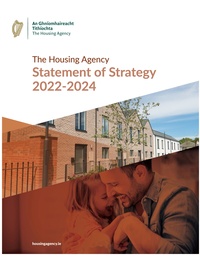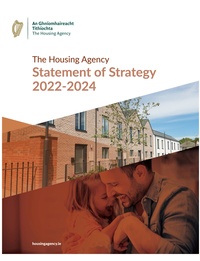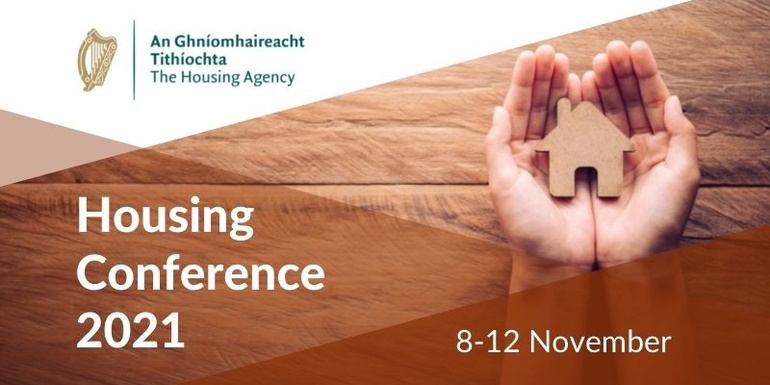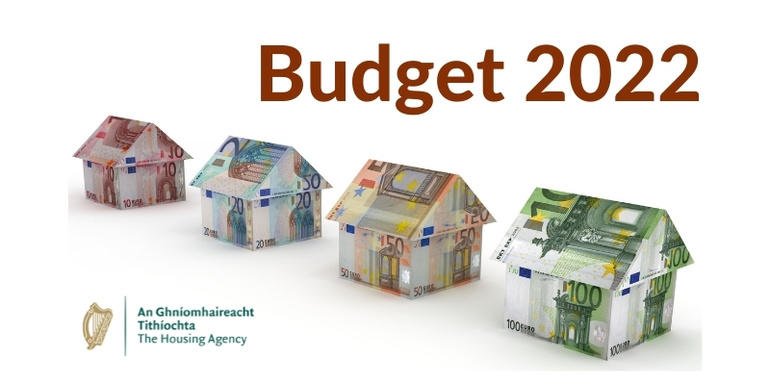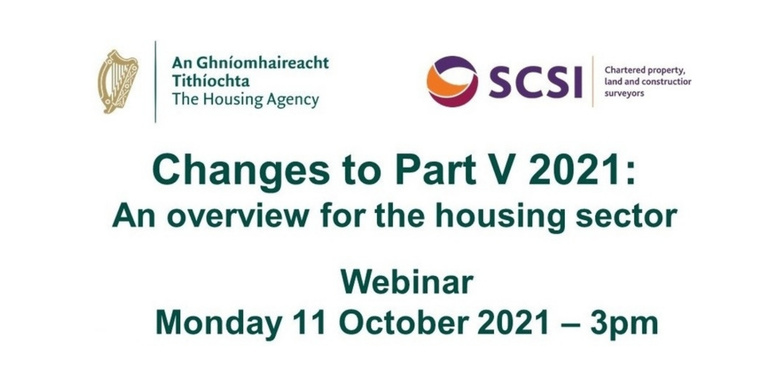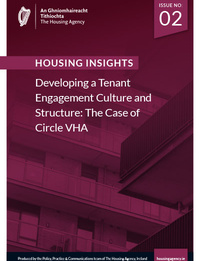
The Housing Agency Housing Insights Series aims to disseminate good practice in housing and innovative solutions among housing practitioners in Ireland. Issues are published quarterly and provide a case study of effective, practical implementation of a piece of housing policy or practice. The resulting short paper is intended to provide a knowledge base and provide ideas to others in the sector, building the overall capacity of the sector. The Housing Agency sources case-studies from our staff, The Housing Agency panels, housing practitioners and stakeholders. This second issue of the Housing Insights Series was published in September 2022 on the topic of Developing a Tenant Engagement Culture and Structure: The Case of Circle VHA.
This Housing Agency Housing Insights Series paper describes how Circle VHA has collaborated with tenants to build a tenant engagement culture and structure. It demonstrates the benefits that can be gained – both for tenants and social housing providers – from a structural approach that embeds tenant engagement policy and practice within an organisation’s strategic vision. With the publication in 2022 by the Approved Housing Bodies Regulatory Authority (AHBRA) of new standards requiring AHBs to actively seek input from tenants and provide opportunities for engagement on service provision, the aim of this case study is to provide information to other social housing providers developing tenant engagement structures.
You can access and read the full report here

